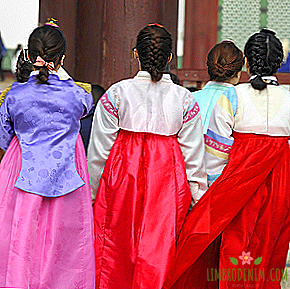Gallery owner Elena Bakanova about favorite books
IN BACKGROUND "BOOK SHELF" we ask journalists, writers, scholars, curators, and anyone else not about their literary preferences and publications, which occupy an important place in their bookcase. Today our guest is Elena Bakanova - director of the Paperworks Gallery gallery.

The habit of reading was formed by itself and as an opportunity to withdraw, the possibility of mental privacy. I loved being alone since childhood and I have never been bored. My parents did not force me to read, as I recall. In fact, revisions in your category of my favorite books, as a rule, fall into the genre of "adventure" or "travel." Starting from childhood “Dunno on the Moon”, “Wonderful Journey of Nils with Wild Geese” and later - “Gulliver in the Land of Lilliputians” or “Don Quixote”, ending with Borges, Proust, Umberto Eco or Fowles, Welbeck and even Bret Easton Ellis . All these authors form for me the corpus of the literary theme "Map and Territory". The characters of these books are artistic half-frames, half-eccentrics in search of the meaning of life and in flight from its narrow-minded despondency.
The book, which made a huge impression on me at a transitional age, is Marquez’s “One Hundred Years of Solitude”. I think it’s not original in my choice of teen book. I had the most difficult relationship with Marcel Proust, I always read it not with enthusiasm, but “I can’t”, and he’s a terrible bore. Similar relationships were with Joyce. I once read in an interview or an article by Umberto Eco that in the book The Name of the Rose, he specifically made a monotonous introduction of one hundred pages to weed out an impatient reader and set a certain reading rhythm. But the book is grand and further events are developing very intensively, in a semi-detective genre. This writing trick led me to forced reading experiences.
At a certain student period of my life, I read a lot and, as a rule, several books in parallel, so I learned basic speed reading skills at the same time. In general, when I need, I can read very quickly or arbitrarily change the speed of reading. Returning to the genres, the authors and the content, in her priority list of books she found nothing “about love” or about the “overcoat” of the average man, which is so rich in Russian literature of the XIX century. I don’t know what dictates this personal choice, but, as A. S. Pushkin wrote, “Are there many gain in the trough?” Another thing is "War and Peace", "Demons", "Brothers Karamazov", search for grails, secret cards or Masonic conspiracies.

Vladimir Sorokin - the purest example of modern art in literature and a solid field of experiment with language

Here is a brief summary of my entire mimesis, genesis and history. I return, frankly, only to Shakespeare, Tolstoy and Dostoevsky. As the ancient Greeks said, mine is what I learned or ate. That is, everything that I learned has already become mine. The authors and prototypes are lost, and I do not suffer from nostalgia. I read, however, regularly stories Bukowski. Relations with poetry did not work out, there is only Brodsky and Mandelstam.
At student age, at a certain moment, completely switched to non-fiction, but the most that is fiction is philosophy, mainly modern French, structuralism, poststructuralism, etc. This was a mandatory program in the study of modern art and its theoretical foundations. . Favorite authors then - Bart, Deleuze, Derrida and Baudrillard. Contemporary art for me began with Marcel Duchamp. That is, not with plastic, but just with the theory. The choice of modern art as a sphere of professional activity is also, apparently, never to be boring.
My bookshelves are occupied mainly by albums on modern and old art, on theory and its history, and on modern architecture. I love to watch no less, and now even more than read. Books are laid out and placed on all the shelves anywhere. By the way, my entire adult life has been accompanied by the books of the publishing house Ad Marginem, and they are publishing a lot of interesting things even now.
Vladimir Sorokin is the purest example of modern art in literature and a continuous field of experiment with language. He returned with "Tellurium" again as a great Russian writer. Pelevin for me is in the category of desktop literature, I read him all, as an old friend with a stunning sense of humor, who has succeeded in the genre of social satire. In the near future I am going to read the Jonathan Franzen Amendments, all the time I postpone.

"In search of lost time"
Marcel Proust
I have not had a chance to pass this novel. Merab Mamardashvili constantly wrote and analyzed Proust. Proust also turned out to be a cult figure for Moscow conceptualism. He invented the genre of a new modernist novel - an existential journey through life, let's say. The literature is heavy and is an existential journey for the reader too.

"Don Quixote"
Miguel de Cervantes Saavedra
Great book about solitude and punishability of artistic behavior.

"The name of the rose"
Umberto Eco
Umberto Eco is one of my favorite authors - a philosopher, semiologist, medievalist, so the novel is set in a medieval monastery. A genre is a philosophical detective novel in which a monk (or the abbot?) Turns out to be a serial killer, who does not tolerate laughter and irony. Actual metaphor for all times, as they say. Eco's list of favorite books also includes the Foucault Pendulum novel and a philosophical analysis of the art of the 2nd half of the 20th century - “An Open Work”.

"Map and territory"
Michelle Welbeck
This ironic novel of Welbec is a kind of modern version of Proust's existential novel. The most interesting thing about him is that, in addition to the main character, he introduces himself into the novel as a character under his own name and commits the same caricature act of euthanasia in the genre of "Texas Chainsaw Massacre". In addition, for the first time, modern art and its critics as a phenomenon of modern culture are present in the novel by Elbeck.

"Poems. Poems"
Vladimir Mayakovsky
Romantic character, poet, revolutionary, his figure intrigued me almost from childhood.

"Novel"
Vladimir Sorokin
Well what do you say here? Sorokin is a genius. The book "Roman" refers to the academic period of the author - the period of experiments with the deconstruction of language, form and genre. The name of the main character is Roman, from the city he comes to his relatives in the village, large-scale pastoral paintings end in a bloody meat grinder and intertext in the final. "The romance started. The novel twitched. The novel moved. The novel twitched. The novel died." "Roman" and "Norma" - is the mustread of modern Russian literature.

"Glamor"
Bret Easton Ellis
One of the main books of the 90s. Again travel - adventure - existence, again social satire, again blood, slaughter and explosions, as I like, in literature, of course.

"Fairy Tales"
Charles Perrot
Well, how can you comment on the book from the compulsory list of children's literature, and especially the tales of Charles Perrault, whose characters, such as Cinderella or Little Red Riding Hood, have become the archetypes of modern psychoanalysis? Is that the joke of the American conceptualist Joseph Kosuth, which he told during his visit to Moscow (with me three times) to different people and watched the reaction: "Little Red Riding Hood is walking through the forest meets a wolf. The wolf tells her:" Now I will tear off you I’ll put some clothes on the ground and fuck my ass. ”To which Little Red Riding Hood pulls a gun out of her pocket, puts herself on her temple and replies:“ Either everything will be like in a fairy tale, or I will kill myself. ”

"Collection"
Jorge Luis Borges
"Life is chaos, but the world is text." Intellectual, philologist, philosopher and librarian of incredible and inhuman erudition, who created the book-charades. Borges has repeatedly said that art and philosophy are almost identical for him. Phantasmagoria stories, edification stories, page notes to imaginary texts, hidden quotations and borrowings - all this really fascinated me.

"Hamlet"
William Shakespeare
The tragedy in five acts. In Russian translations of the XIX-XX centuries. Hamlet translated into Russian more than twenty times. Each translation is a new interpretation. And the lawyers for "William Shakespeare," as you know, are not needed.

"Demons"
Fedor Dostoevsky
Great book. On this, perhaps, everything.






